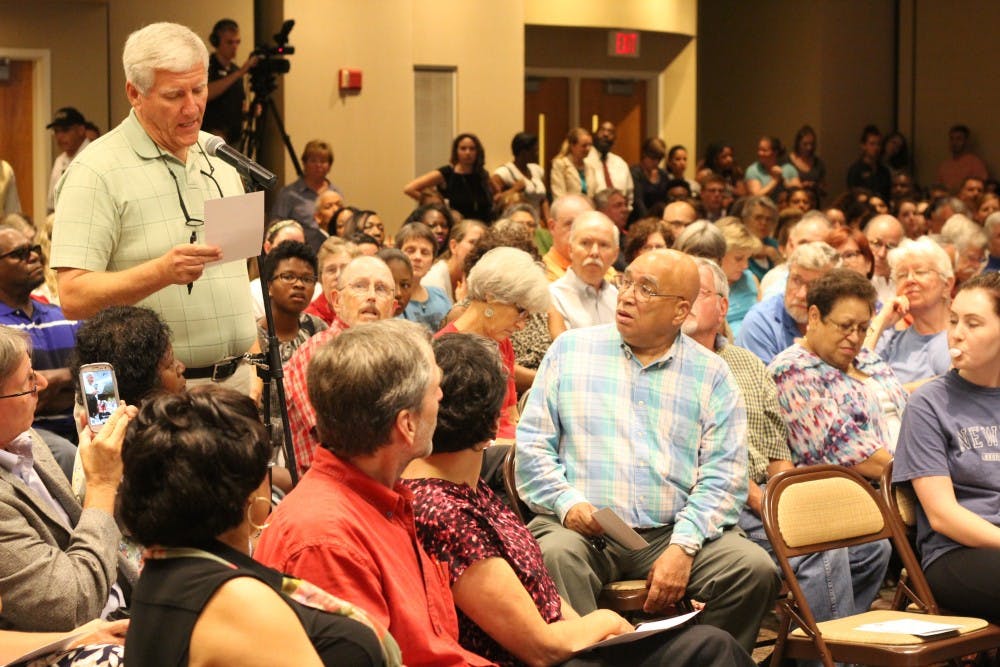All but a few seats remained as the last audience members trickled into McKinnon Tuesday evening.
The diverse audience – ranging from Elon University faculty, staff and students to local community members and high school students – gathered to discuss the heavily discussed topic of race relations.
The conversation, which centered around race relations issues and solutions within education and religion, was moderated by Jason Husser, assistant professor of political science and policy studies, and also included four panelists– Jim Bissett, professor of history, Barrett Brown, NAACP of Alamance County president, Patrice Fields, St. Matthew’s AME Church pastor and Tony Foriest, a former state senator and retired business.
Students discuss their opinions about race relations. Multimedia by Sydney Spaulding, multimedia reporter.
They gathered to converse on an issue many agreed was important in the present and key to help the community and nation move forward.
“It seems to me that this is one of the most compelling issues in this country in the years to come,” Foriest said. “People have to understand that when you talk about race it brings about some raw emotions. It’s very difficult for people to want to change that. There’s a fear factor that’s associated with it.”
Bissett echoed that challenge in having difficult conversations.
“Talking about these things is tough,” he said. “There’s no way to answer everything but one thing seems fundamental: We can’t make progress without sharing.”
And with that, the sharing and conversing began.
Fields said that one of the first steps to change is people acknowledging and dealing with their own biases.
After people recognize their biases, another path to progress is citizens stepping up and taking action, according to Foriest.
“Where the change is going to come is when we, as ordinary citizens, stand up and say we will not be led by the kind of rhetoric,” Foriest said. “We all have a responsibility to say something.”
Despite social change and movements, a current barrier that still remains, according to university chaplain Jan Fuller, is religion.
“11 a.m. on Sunday is the most divided hour in the country,” Fuller said. “What can spiritual communities do to help?”
Fields encouraged people to start within their congregation, citing two churches of different ethnicities that partnered decades ago.
“Partner with a church of other ethnicity,” she said. “When they started it, it was radical, but now it’s part of the fabric of the community. As faith leaders we can reach out to other leaders and start interfaith dialogues.”
A challenge for the future, according to some audience members, was expanding the discussion to different people and ethnic groups.
While the discussion reached a room full of people, junior Emily Roper said the impact could have been greater.
“Looking around this room I see a lot of diversity here,” Roper said. “The reality is the people we need to be having these conversations with are not here right now.”
Another audience member challenged the central discussion of black race relations and said there are other ethnic groups who deserve discussion, as well.
With little time left in the forum, Husser asked the panelists to give advice to what people can do to improve relations.
Answers varied, but they all had a common thread: education and awareness.
“As far as I’m concerned, read, study, get involved and challenge the status quo,” Foriest said. “The amount of information out there is astounding. Don’t rely just what you had in your tenth grade history book. The information you are seeking is out there, it just means you have to dig a little bit to get it. Understand what happened and how we got in the situation we’re in.”


